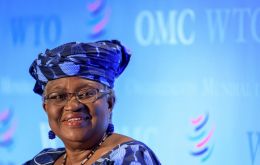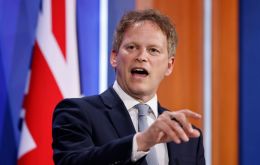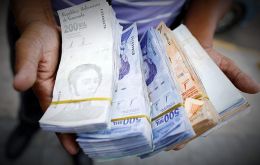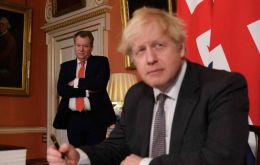MercoPress. South Atlantic News Agency
Economy
-
Wednesday, November 10th 2021 - 09:26 UTC
China in 20 years has become the world's factory and leading trade partner

China has increased its global trade ninefold in the twenty years since joining the World Trade Organization, WTO, well ahead of the United States, according to the UN Conference on Trade and Development, UNCTAD.
-
Wednesday, November 10th 2021 - 09:15 UTC
LATAM releases 3Q results: despite losses of US$ 692 million, business picking up and costs down

LATAM reported on Tuesday that during the third quarter of this year it registered a net loss of US$ 691.9 million, due to the costs of maintenance and the expenses of the restructuring carried out by the pandemic.
-
Wednesday, November 10th 2021 - 09:14 UTC
WTO speeds fisheries subsidies negotiations ahead of end of the month ministerial conference

The World Trade Organization chair of the fisheries subsidies negotiations, Ambassador Santiago Wills of Colombia, introduced a second revision of the draft negotiating text to be used as the basis for clause-by-clause discussions among members aimed at resolving remaining differences ahead of the 12th Ministerial Conference (MC12) to be held on 30 November to 3 December.
-
Tuesday, November 9th 2021 - 20:40 UTC
UK adds brands of COVID-19 vaccines to list of treatments admitted for travelers

Health authorities from the United Kingdom have added Sinovac, Sinopharm Beijing and Covaxin to the list of immunizers to be accepted in order to spare incoming travelers a mandatory quarantine.
-
Tuesday, November 9th 2021 - 16:00 UTC
Venezuela's inflation slowing down but still very high

Inflation in Venezuela for October of 2021 was 8.1%, for a YoY record of 1,258%, according to a report from the Venezuelan Observatory of Finance (OVF) released Monday.
-
Tuesday, November 9th 2021 - 09:15 UTC
US Deputy Secretary of State visits Uruguay meets with ministers

United States Deputy Secretary of State, Wendy Sherman who arrived in Uruguay on Sunday and leaves met on Monday with Foreign and Economy ministers, in Montevideo, as part of a South American visit that also includes Peru.
-
Tuesday, November 9th 2021 - 09:10 UTC
A UK-EU trade war?

By Gwynne Dyer – International treaties are serious business. A lot of time and effort goes into negotiating them and they become part of international law. It’s very rare for a politician to say, only a couple of years after negotiating a treaty, that his country always felt it was “a little bit provisional and open to review.
-
Tuesday, November 9th 2021 - 08:03 UTC
Argentine pharmaceuticals agree to freeze meds prices

The Government of Argentina and the local pharmaceutical companies have agreed to freeze the price of medications until Jan. 7, 2022, the Health Ministry and the Domestic Trade Secretariat announced Monday.
-
Monday, November 8th 2021 - 20:54 UTC
Tourists welcome again in US after 20 months

The Government of the United States Monday reopened the country's land and air borders Monday to foreign visitors who are vaccinated against COVID-19.
-
Monday, November 8th 2021 - 09:23 UTC
Lower export taxes on hake, squid and shrimp, as long as they are processed in Argentina

The Argentine government has issued Decree 754/2021 which lowers fisheries export taxes, particularly referred to hake, shrimp and squid as long as they are processed in the country including added value, to the benefit of Argentine industry and labor.
